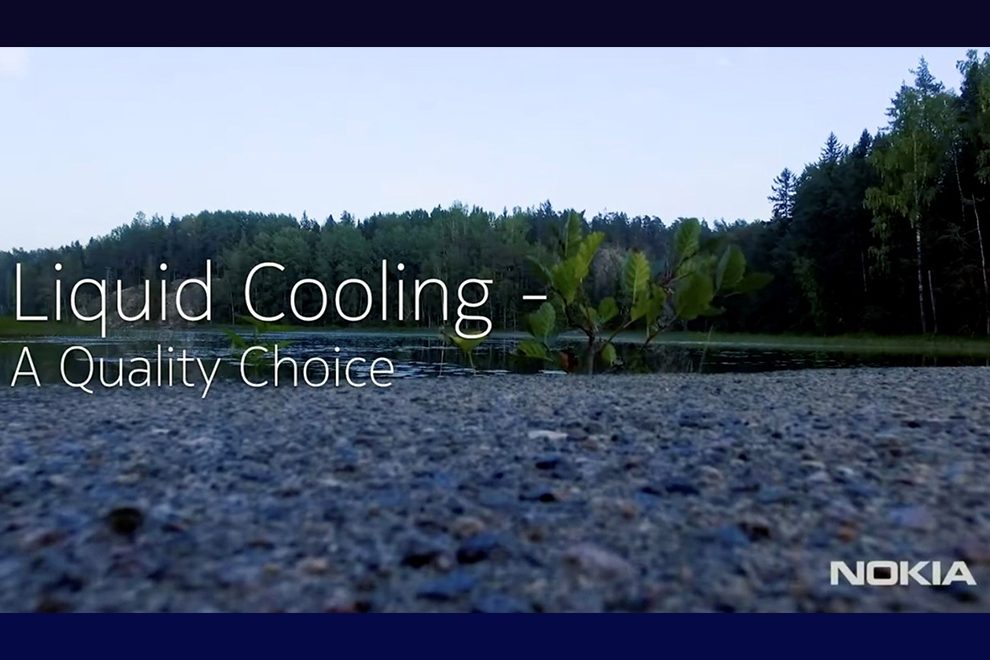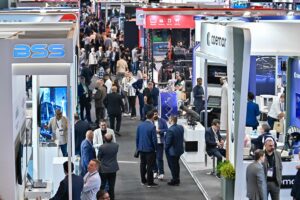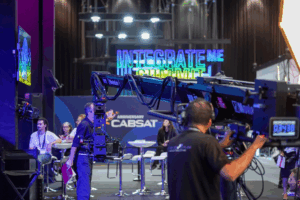Nokia has announced the commercial availability of its innovative Liquid Cooling AirScale portfolio. Nokia’s first-of-its-kind solution is designed to make radio networks more sustainable and cost-efficient by reducing the energy required to cool a base station. Cooling system energy consumption can be reduced up to 90 percent and base station CO2 emissions up to 80 percent compared to traditional active air-cooling systems1. The move supports Nokia’s ambitions to have the most energy-efficient, zero-emission 5G product portfolio in the industry. Commercial products will be available from Q3 2022. Nokia also announced that AT&T is piloting the solution in a live network trial in Philadelphia, U.S.
Nokia’s liquid-cooled AirScale baseband solution can accommodate any liquid-cooled common or capacity plug-in unit and supports all radio access technologies from 2G to 5G. It supports the reduction of base station-related CO2 emissions by up to 80 percent. Nokia’s Liquid Cooling solution is also almost completely silent and maintenance-free making it ideal for apartment buildings, whereas more traditional air-cooling systems are typically noisy and require regular maintenance. Liquid is much more efficient in the transmission and transfer of heat. Nokia’s solution carries the captured waste heat produced by the base station during operation. This can then be circulated and reused for other purposes, for example, it can be redirected to a building’s heating system for free, at a price, or even traded.
Nokia is committed to leading the decarbonization of the telecommunications industry and helping other industries and communities to decarbonize and dematerialize through digitalization. Digitalization is critical for making industries more sustainable resulting in less waste, more resource-efficient, and more productive. Nokia has set a science-based target to reduce its emissions by 50 percent by 2030 across its value chain, including its operations, products in use, logistics, and final assembly supplier factories. Nokia has also been increasing its share of renewable electricity and is committed to reaching 100 percent by 2025.
Experience Liquid Cooling at MWC22 Barcelona
At MWC22, Nokia will showcase how its products and services can reduce CO2 emissions and the cost of energy and help its customers to take control of their sustainability targets. Nokia will demonstrate its AirScale Radios with energy-efficient software features as well as its Liquid-cooled AirScale
Joe Taylor, VP Implementation, Provisioning & Optimization at AT&T, said: “AT&T is committed to tackling climate change, enhancing the efficiency of our network, and reducing our operational carbon footprint. We’re pleased to work with Nokia as we take a more sustainable path and to trial its liquid-cooled base station in our network. We firmly believe that sustainability is one of the biggest factors impacting the world right now and is a key differentiator in business. We’re eager to continue aligning with like-minded, innovative companies like Nokia that are developing ground-breaking solutions to combat climate change.”
Daryl Schoolar, Research Director at IDC, said: “Controlling total cost of network ownership remains an important priority for mobile operators. A significant portion of that total cost of ownership comes from operating expenses. Network solutions that can lower those operating expenses, which includes cost of energy, are certainly welcomed by mobile operators. Also, if those solutions can help an operator achieve its green energy goals, that is just another added plus.”
Tommi Uitto, President of Mobile Networks at Nokia, said: “There is no green without digital and the commercial availability of Nokia’s liquid cooling technology across our AirScale portfolio highlights our commitment to leading the industry to become more sustainable through digitalization. Our innovative, game-changing solution reduces energy consumption, costs, and carbon emissions and helps mobile operators become more environmentally responsible. 5G networks and technologies will play a critical role in making other industries more sustainable and we must all play our part to minimize our footprint and accelerate the use of green electricity.”












